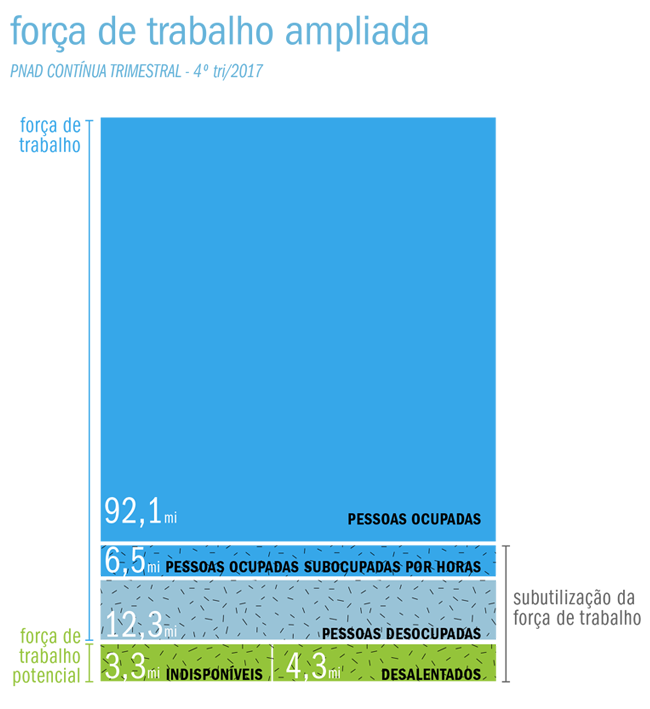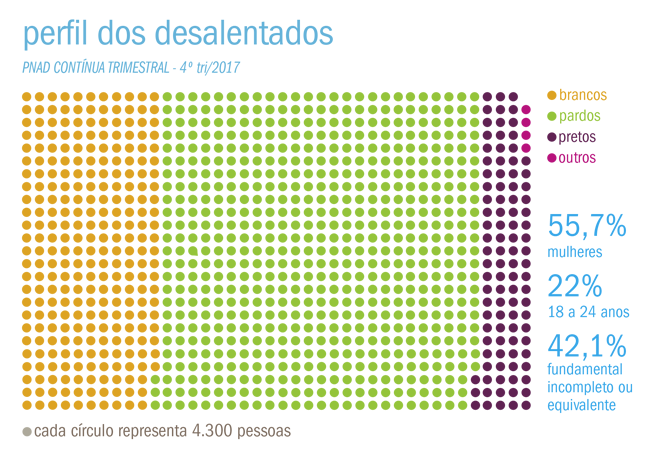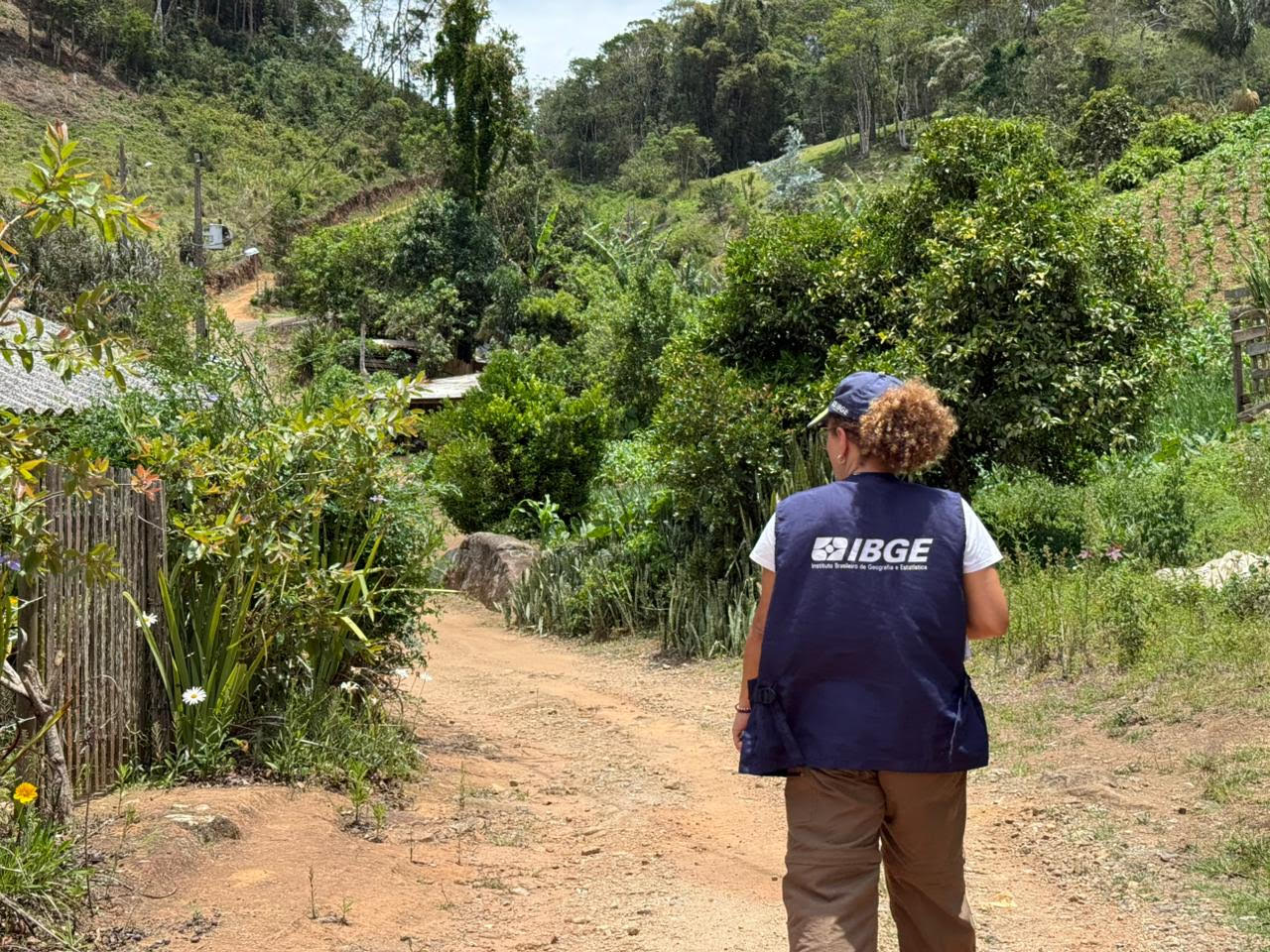Retratos Magazine
Discouragement of those who have given up job searching
June 01, 2018 10h00 AM | Last Updated: June 05, 2018 05h55 PM
In Brazil, in the 4th quarter of 2017, the discouraged reached 4.3 million people, the largest number since the beginning of the Continuous Pnad time series, started in the 1st quarter of 2012, when the discouraged totaled 1.9 million.
Alane Nascimento and Andressa Estrela, for instance, have in common, besides their age (23 years), the same feeling in relation to the labor market: discouragement. They are students, who live in Salvador (BA), and gave up looking for a job after applying for several positions and not even being called for the interview; nevretheless, they would not hesitate to take the job if they were called.
"I used to send my resume to work as a salesperson in shops, malls, as a cashier, telemarketing operator, and I was never called. I believe it was because of my lack of experience, since I've only worked in a company as a young apprentice," says Andressa, who sought new opportunities unsuccessfully for three years and gave up the search ten months ago.
Alane, in turn, has searched for a formal job for four years since her contract as a young apprentice was terminated in 2014. She gave up knocking on companies' doors about eight months ago. "During that time, I distributed about 60 resumes. When I saw that no one would call me back for an interview, I would get discouraged and give it up, later I would try again. But in August of 2017, I decided to stop searching," says Alane. The two young women are among the 663,000 people who were out of the labor force in Bahia for one of the following reasons: they were unable to work or had no experience or were too young or too old or did not find work in their surroundings - and who, if they had gotten a job, would have been available to take it. They are the so-called discouraged population.

Young, little experienced and discouraged
In Minas Gerais, Indira de Oliveira, 24, gave up looking for a job and, because of that, she had also to give up getting married and building her own home. Ever since the small telemarketing company she worked for closed, at the end of 2015, Indira has not managed to get a formal position in the labor market. And nobody can blame her for not trying: between October 2015 and November 2017, the youngster distributed 358 resumes in the Metropolitan Area of Belo Horizonte. "Of this total, 15 companies at most scheduled interviews. Few have called back," she claims. Tired of suffering from the expectation of getting a job, she decided to stop searching for it at the end of last year.
People who did not give up looking for work - the 12.3 million unemployed, plus the 6.5 million time-related underemployed and the 7.6 million people who are out of the workforce account for 26.4 million Brazilians that lack work. "This disaggregation shows that it is not only about generating jobs, but also about women who have no one to leave their child with, about the difficulty that young people have to enter the labor market. Discouragement is about all this, with big signs pointing out to youngsters, women, black or brown population and mainly people with lower education levels", explains the coordinator of Labor and Income of the IBGE, Cimar Azeredo.

Difficulty to start over
Another group of the population affected by discouragement are the elderly. From Pernambuco, Jô Fontes, 54 years old, tried to enter the labor market again in 2015, more than two decades after having retired. Since she was 18, she worked for big stores in Recife and only stopped working at the age of 30, after one of her daughters was born. "I had a baby, she had pertussis, you know ... I really had to quit my job to take care of her," she recalls. Jô stayed out of the work force until he got a divorce; then, she started looking for a job. She updated her resumé and distributed it in several stores, but she only got disappointed: silence, prejudice, noes... finally, she gave up. "I saw that I didn't stand a chance anymore, so I stopped. The problem was age, and day after day I was getting older, what could I do?" She asks." It's embarrassing when you look and look and look for something, ... then somebody sees your picture and supposes that you haven't got a chance", she complains.
Read more about it in Retratos magazine no. 11.


















